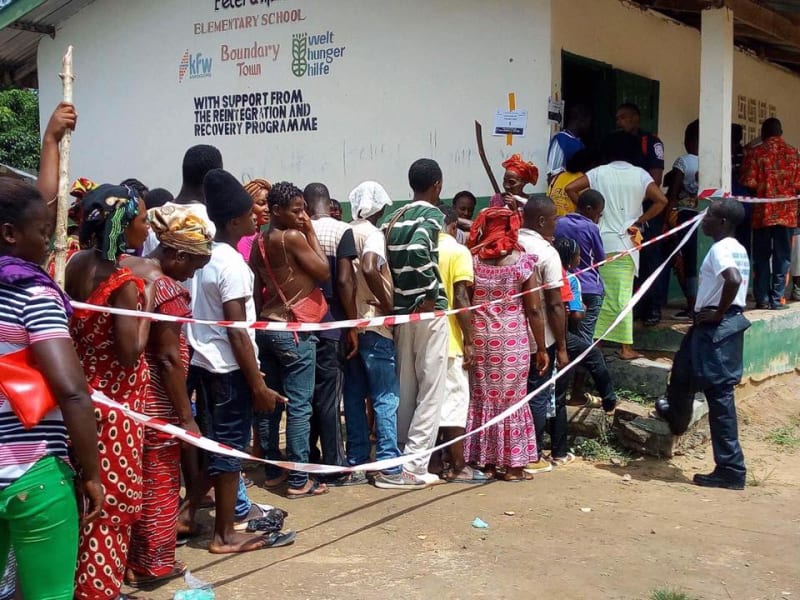Liberia, a nation etched with the scars of a turbulent past, stands at a crossroads. As the Boakai-Koung administration enters its second year, the weight of unfulfilled promises and persistent hardship bears down upon its citizens. The initial optimism that accompanied the administration’s inauguration has faded, replaced by the grim realities of poverty, unemployment, and inadequate healthcare. While the resilience of the Liberian people remains undeniable, their hopes for a brighter future are slowly dimming, replaced by a silent scream for meaningful change. From the bustling markets of Monrovia to the remote villages scattered across the nation, the struggles of ordinary Liberians paint a stark picture of the challenges ahead. The story of Kardu, a market vendor struggling to provide for her children amidst rising costs and dwindling sales, exemplifies the plight of countless Liberians caught in the grip of economic hardship. Their dreams, once vibrant and full of promise, are now threatened by the harsh realities of their daily lives. The administration’s second year presents a critical opportunity to bridge the gap between rhetoric and reality. It is a time for concrete action, for policies that resonate with the lived experiences of the masses.
The administration must move beyond symbolic gestures and engage in a genuine dialogue with the people it serves. This necessitates active listening, understanding the unique needs of diverse communities, and fostering partnerships built on mutual respect and trust. Governance in Liberia cannot be a top-down affair; it must be rooted in the social and economic realities of its citizens. The cries for justice, equity, and hope must echo within the halls of power, shaping the priorities of governance and ensuring that no individual is left behind. The path to recovery lies in recognizing the inherent dignity and potential of every Liberian, empowering them to become active participants in their nation’s progress.
Education is the cornerstone upon which a brighter future can be built. The current state of education in Liberia is a stark reminder of the work that remains to be done. Financial constraints and inadequate infrastructure continue to bar many children from accessing quality education. The administration must prioritize investment in education, focusing on accessibility, quality, and relevance to both local and global needs. By equipping teachers with the resources they need and ensuring that every child has the opportunity to reach their full potential, Liberia can cultivate a skilled workforce capable of driving sustainable development. Imagine a future where classrooms are filled with eager learners, where teachers are empowered to inspire, and where every child believes in the possibility of a brighter tomorrow.
Healthcare is another critical area demanding immediate attention. The scars of past health crises, coupled with the ongoing struggle to access quality medical services, underscore the urgent need for reform. The administration must prioritize the establishment of accessible healthcare facilities and invest in training healthcare professionals. Liberians deserve a system that is responsive to their needs and respects their dignity. Envision a nation where access to quality healthcare is a right, not a privilege, where mothers can receive the care they need without anxiety, and where diseases are effectively managed, not feared.
Economic reinvigoration is essential to restoring hope and opportunity. Empowering the workforce to actively participate in a growing economy requires policies that stimulate job creation, promote entrepreneurship, and provide vocational training tailored to the talents and aspirations of Liberians. By providing the necessary tools, support, and encouragement, the government can unlock the potential of its citizens, enabling them to transform their lives, communities, and the nation as a whole. Imagine a future where young Liberians, like Kardu’s children, can pursue their dreams of becoming doctors and engineers, contributing to a prosperous and vibrant society.
While government initiatives are crucial, community engagement and collaboration are equally important. Grassroots movements possess the power to drive meaningful change from the ground up, amplifying the voices of those often overlooked. The Boakai-Koung administration must actively engage with local leaders and communities, recognizing that they are integral to any successful effort to address Liberia’s challenges. By listening to their concerns, understanding their needs, and building partnerships based on mutual respect and trust, the government can foster shared innovation and create a truly inclusive approach to development. The heart of Liberia beats in the rhythm of its people, their dreams and struggles intertwined, forming a vibrant tapestry of life.
The second year of the Boakai-Koung administration presents a defining moment. Will it rise to meet the demands of its people, translating rhetoric into tangible action? Will it prioritize the voices of the masses over the interests of the few? The opportunity for change is at hand. By embracing the potential of its united and empowered populace, Liberia can rewrite its narrative, emerging from the shadows of its past into a new era of prosperity and resilience. The future of Liberia must be illuminated by hope, possibility, and love – the qualities that define the spirit of its people. The time for transformative change is now.














